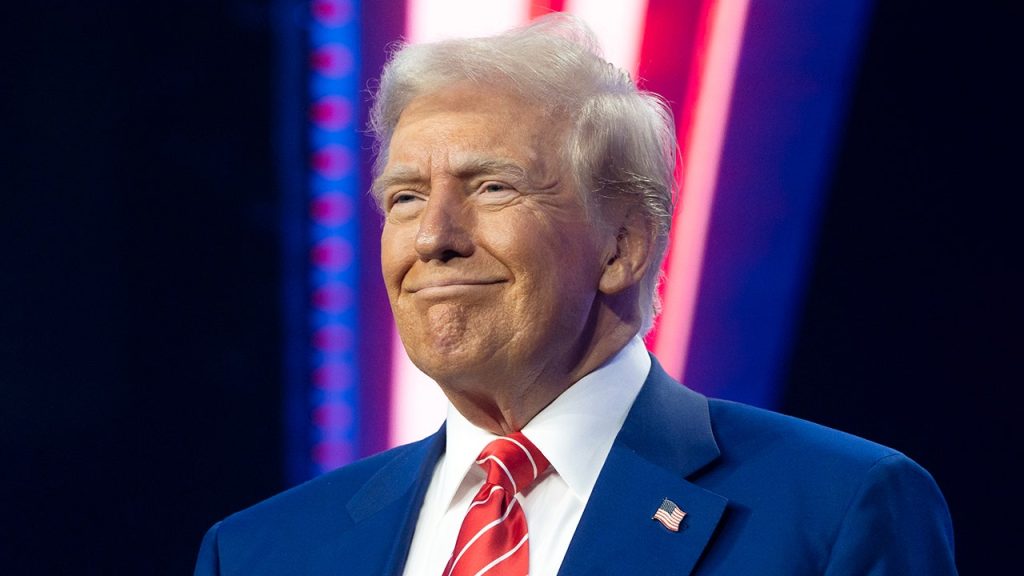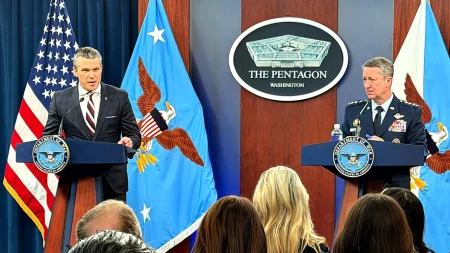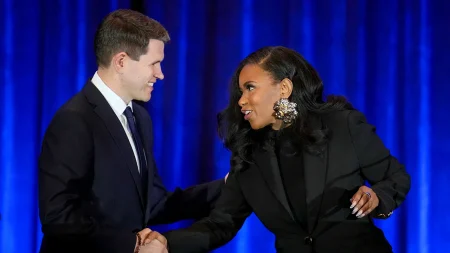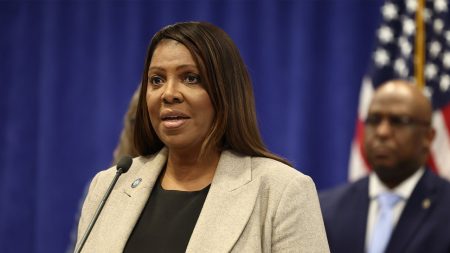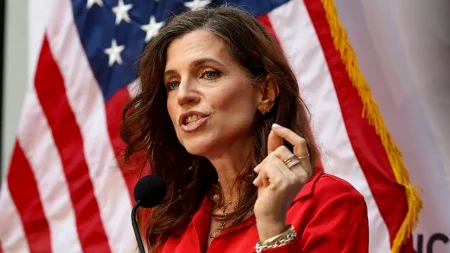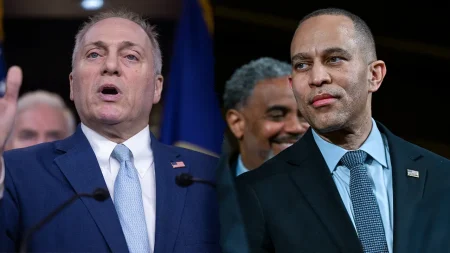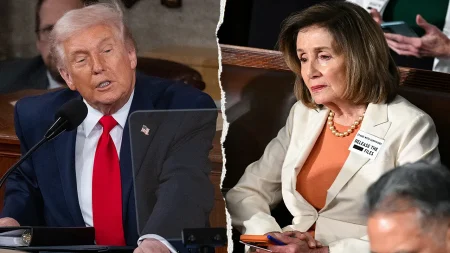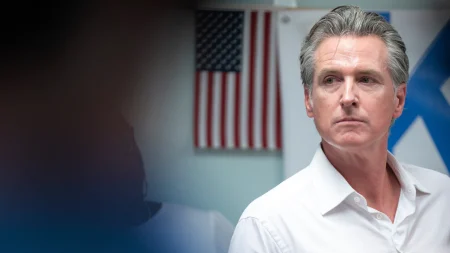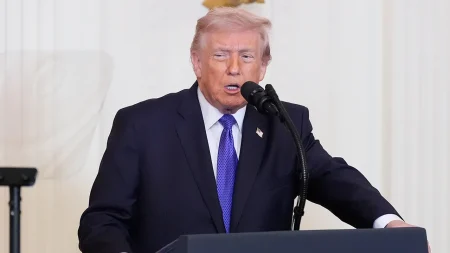Expansion and Elaboration on Trump’s Treasury Appointments and Ambassadorial Nominations
Former President Donald Trump’s recent announcement of key appointments to his prospective administration, should he be re-elected, sheds light on his economic and foreign policy priorities. The Treasury Department appointments, in particular, signal a focus on tax reform and fiscal policy, while the ambassadorial nominations suggest an emphasis on strengthening relationships with key allies and promoting American business interests abroad. These appointments provide a glimpse into the potential direction of a future Trump administration and the individuals he trusts to implement his vision.
The Treasury team, assembled under the leadership of Scott Bessent, the presumptive Treasury Secretary nominee, includes several experienced professionals in tax law, policy, and finance. Ken Kies, a veteran tax lawyer with extensive experience in Congress, is slated for the role of Assistant Secretary for Tax Policy. Kies’s background suggests a focus on tax legislation and potential revisions to the existing tax code. Alexandra Preate’s appointment as Senior Counsel to the Secretary brings public relations expertise to the team, indicating a focus on communicating the administration’s economic policies to the public. Hunter McMaster’s role as Director of Policy Planning will likely involve crafting and coordinating the department’s overall economic strategy, while Daniel Katz, a senior fellow at the Manhattan Institute and former Treasury advisor, is tapped as Chief of Staff, suggesting a focus on conservative economic principles. Samantha Schwab’s appointment as Deputy Chief of Staff draws on her experience in legislative affairs, hinting at a focus on working with Congress to enact the administration’s economic agenda.
Beyond the Treasury appointments, Trump’s ambassadorial nominations reveal his priorities in international relations. Benjamin Leon James, tapped for the role of Ambassador to Spain, brings entrepreneurial and philanthropic experience to the position. His personal story, immigrating from Cuba and building a successful business, resonates with the narrative of opportunity that Trump often promotes. The appointment may also signal an intent to strengthen ties with Spain, a key NATO ally and important trading partner. Joe Popolo, nominated as Ambassador to the Netherlands, boasts a successful business background and a strong commitment to philanthropy, suggesting a focus on promoting American business interests and strengthening bilateral relations. His experience in the events industry could also be valuable in fostering cultural and diplomatic exchanges.
The selection of Cora Alvi as Deputy Chief of Staff underscores the importance of campaign finance and fundraising in Trump’s political operations. Alvi’s experience in this area suggests a continued emphasis on cultivating a strong financial base for future campaigns and political activities.
These appointments, while preliminary, provide a framework for understanding the potential personnel and policy directions of a future Trump administration. They reflect a mix of experience in business, law, policy, and public relations, suggesting a multifaceted approach to governing. The emphasis on tax reform, economic growth, and strategic partnerships with key allies indicates a continuation of Trump’s core policy priorities.
Further Elaboration on Potential Policy Implications
Trump’s Treasury picks, combined with his previous economic policies, suggest a potential return to tax cuts and deregulation as central tenets of his economic agenda. Kies’s expertise in tax law may lead to further revisions of the tax code, potentially including further reductions in corporate and individual income taxes. The emphasis on business experience in both Treasury and ambassadorial appointments may signal a continued focus on fostering a pro-business environment and promoting American economic interests abroad.
The ambassadorial nominations suggest a desire to maintain strong relationships with key allies like Spain and the Netherlands, while also potentially prioritizing bilateral trade agreements and economic partnerships. James’s and Popolo’s business backgrounds may facilitate efforts to promote American businesses in these countries and expand trade opportunities. The nomination of James, a Cuban-American, to the Spanish ambassadorship could also symbolize a renewed focus on Latin American relations and addressing the challenges posed by communist regimes.
Alvi’s appointment as Deputy Chief of Staff reinforces the importance of campaign finance and fundraising in Trump’s political strategy. This suggests a continued emphasis on building a strong financial base to support future campaigns and political activities. Her experience in campaign finance will likely be crucial in navigating the complex regulatory landscape governing political fundraising and ensuring compliance with campaign finance laws.
Speculation on Broader Political Strategy
These appointments also offer insights into Trump’s broader political strategy. The emphasis on individuals with strong business backgrounds suggests a continued effort to appeal to business owners and entrepreneurs, a key constituency within the Republican Party. The nominations of individuals with diverse backgrounds, including immigrants and individuals with extensive philanthropic experience, may also be an attempt to broaden his appeal beyond his core base of supporters.
The focus on tax cuts and deregulation could be aimed at stimulating economic growth and creating jobs, a key theme in Trump’s previous campaigns. The emphasis on strengthening ties with key allies and promoting American business interests abroad suggests a continued focus on "America First" policies and asserting American leadership on the global stage.
The appointment of Alvi to a senior position in his political operation underscores the importance of campaign finance in Trump’s political strategy. This could be seen as a preparation for future campaigns and an effort to ensure he has the financial resources necessary to compete effectively.
Potential Challenges and Obstacles
Despite these strategic considerations, the potential implementation of these policies and appointments faces several potential challenges. Any significant tax reforms or deregulation efforts could encounter resistance from Democrats in Congress and advocacy groups concerned about the potential impact on income inequality and environmental regulations. Furthermore, maintaining strong relationships with allies while simultaneously prioritizing "America First" policies could present delicate diplomatic challenges.
The effectiveness of these appointments also hinges on the broader political landscape. The current political climate in the United States remains highly polarized, and any controversial policy proposals could face significant opposition. The success of these appointments in achieving their intended goals will depend, in part, on Trump’s ability to navigate this complex political environment and build consensus across the political spectrum. Furthermore, the appointments themselves are contingent upon a successful re-election bid by Trump, highlighting the inherent uncertainty surrounding their ultimate impact.
Conclusion
Trump’s recent appointments provide a preliminary glimpse into his potential priorities and policy directions should he return to the presidency. The emphasis on tax reform, deregulation, and strategic alliances suggests a continuation of his core economic and foreign policy principles. The selection of individuals with diverse backgrounds and extensive experience in business, law, and public relations reflects an effort to assemble a team capable of implementing his vision. However, the success of




